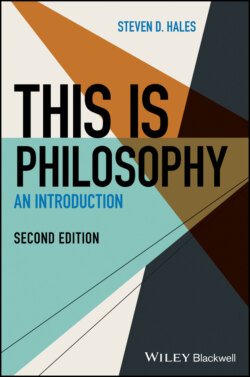Читать книгу This Is Philosophy - Steven D. Hales - Страница 10
1 ETHICS: PRELIMINARY VIEWS:
ОглавлениеLife’s just filled with all sorts of things you’re supposed to do. You should be nice to your sister, brush between meals, never mix beer and wine, get your car inspected, tithe to the poor, wear clean underwear, avoid consumer debt, love thy neighbor as thyself, buy low and sell high, read good books, exercise, tell the truth, have evidence-based beliefs, come to a complete stop at a red light, eat your vegetables, call your Dad once in a while. The list goes on and on. All these things you should do, various obligations, duties, and responsibilities, form the normative universe. Shoulds, oughts, duties, rights, the permissible and the impermissible populate the normative universe. Not all these shoulds and oughts are ethical in nature, however. There are many dimensions to the normative universe, not just the moral dimension. Here are a few examples:
Jeff is deciding whether he should invest his money in gold bullion, mutual funds, or government bonds.
Jennifer wonders whether it is permissible for her to turn right on red in this state.
Kevin is debating whether he ought to put more cinnamon in his ginger snaps.
Holly is considering whether her crossword answer is right.
The first case is about what Jeff should practically or prudentially invest in; the second example concerns the legal permissibility of turning right on red; the third offers an aesthetic case regarding what Kevin ought to do when baking cookies; and the fourth case is about the accuracy of Holly’s believing that her crossword answer is correct. In these cases, “should,” “permissible,” “ought,” and “right” have nothing to do with morality, even though they are still normative expressions. When exactly those words concern morality is not an easy matter to describe with any precision. Nevertheless, confusion will ensue if we aren’t sensitive to the fact that what we ought to do practically or legally is not the same as what we ought to do morally. We will see more of this later.
Everyone is faced with making ethical choices–decisions about what they should do in some circumstance. We must each decide for ourselves whether a potential action is right or wrong, and contemplate the nature of honor, duty, and virtue. There are standards of correct action that aren’t moral standards. Still, it is clear that the following are cases of moral deliberation.
Your best friend’s girlfriend is coming on to you at the party. If you can get away with it, should you hook up with her?
Your friend Shawna knows how to pirate new-release movies, and wants to show you how. Should you go with her and get some flicks?
Your grandmother is dying of terminal pancreatic cancer and has only a few, painful, days to live. She is begging you to give her a lethal overdose of morphine, which will depress her respiration and allow her to die peacefully. Should you give her the overdose?
You are a pregnant, unmarried student. Testing has shown that your fetus has Down Syndrome. Should you abort?
You didn’t study enough for your chem exam, and don’t have all those formulas you need memorized. One of your friends tells you to program your smartwatch with the formulas you need. Your prof will just think you are looking at the time and never catch you cheating. You should do whatever you can to get ahead in this world, right?
These aren’t far-fetched cases; at least a few of them should fit your own experience. Well, how do you decide what to do? If you’re like most people, you might reflect on whatever values your parents taught you growing up; or think about what your religion or holy book has to say on the topic; or go with your gut instinct about what to do; or consider the consequences if you do the action; or imagine how it would make you feel later if you did it; or think about whether the proposed action is compatible with some moral rule you believe, like do unto others as they would do unto you. If you look at this list, you’ll see that it naturally divides into two main approaches: (1) base your action on some rule, principle, or code, and (2) base your action on some intuition, feeling, or instinct.
